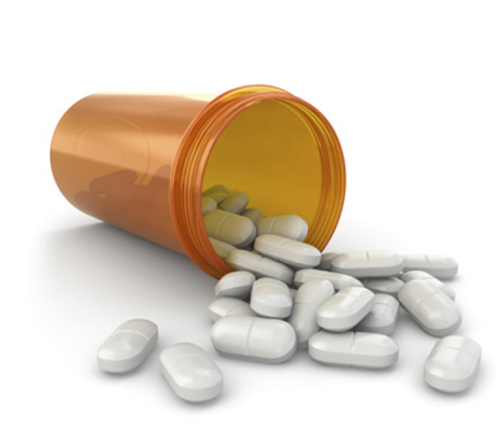Medication for Opioid Use Disorder (MOUD) and Medication for Alcohol Use Disorder (MAUD) can help you change lives for the better

MOUD-MAUD Facts at a Glance
- Utilizing medication for opioid use disorder reduces overdose deaths and overall healthcare costs while helping retain patients in treatment.
- Commercial members who received MOUD-MAUD had significantly lower average total paid behavioral health expenditures than Commercial members who did not receive medication3
- When people engage in MOUD-MAUD and psychosocial supports, they have better outcomes than individuals who only receive medication4.

Studies have shown that individuals who receive methadone and buprenorphine were associated with reductions in overdose and serious opioid related acute care use1
Medications for opioid use disorder (MOUD) is the most effective intervention to treat OUD and is more effective than detoxification, inpatient treatment or intensive outpatient treatment.2
Unlike traditional therapies like detox-to-abstinence treatment which does not address cravings, (a major cause of relapse) MOUD-MAUD takes a chronic disease approach by understanding the need for multiple streams of care to address multiple conditions. MOUD-MAUD plays a critical role in sustained recovery because it pairs therapies such as cognitive behavioral therapy, with an FDA-approved medication to treat substance use disorders and decrease the likelihood of an accidental opioid overdose.
Where traditional treatment comes up short
While the temptation to "stick with what you know" can be hard to resist, the fact is traditional substance use treatment takes an acute, one-size-fits-all approach that fails to address the specific issues and comorbid conditions of the individual. Worse, traditional therapies can also place clients at greater risk of overdose due to lowered tolerances post detoxification.
5,000-plus providers specialize in MOUD-MAUD in over 10,000 locations
Our MOUD-MAUD provider network continues to grow: 94% of our members are within 20 miles of a MOUD-MAUD provider so members can access care locally5. Utilizing our Optum data, we work closely with providers to identify the neighborhoods and communities that would benefit most from having a nearby and easily accessible treatment program. And while our MOUD/MAUD network continues to expand, be assured our proprietary quality requirements to become an Optum provider are stringently observed and adhered to.
- Jama Network, Comparative Effectiveness of Different Treatment Pathways for Opioid Use Disorder. Wakeman, S, Larochelle, M, Feb 2020.
- Jama Network, Comparative Effectiveness of Different Treatment Pathways for Opioid Use Disorder. Wakeman, S, Larochelle, M, Feb 2020.
- Population: Optum members diagnosed with substance use disorder who received MOUD/MAUD between: January 1, 2019 and December 31, 2020, Polydan, September 2021.
- D.Nussbaum. Data from Optum geo access reports for Commercial membership. December 2022.
Substance Use Disorder Helpline
1-855-780-5955
24/7 helpline for providers and patients to:
- Identify local MOUD-MAUD and SUD treatment providers and provide targeted referrals for evidence-based care
- Educate members/families about substance use
- Assist in finding community support services
To learn more about MOUD-MAUD, including Program Development Opportunities and referral resources, please review the materials below.
To learn more about MOUD-MAUD, including Program Development Opportunities and referral resources, please review the materials below:
Key MOUD-MAUD information
- Flyer - More effective than traditional treatment approaches
- MOUD-MAUD FAQs
- MOUD-MAUD White Paper
- Opioid Use Disorder Quick Reference Guide for Clinicians
- Prior Auth needed for OTP Medicare Members effective 2/1/2021
- Opioid Treatment Programs Billing fact sheet
- MOUD-MAUD Induction Outpatient Billing Protocol
- Naloxone informational flyer
- CDC - Naloxone Can Save Lives
Finding a MOUD-MAUD program
MOUD-MAUD clinical resources
- UnitedHealthcare Sublocade Prior Authorization Notice
- Comparative Effectiveness of Different Treatment Pathways for Opioid Use Disorder
- Buprenorphine Quick Start Guide
CDC: Chronic Pain and Opioid